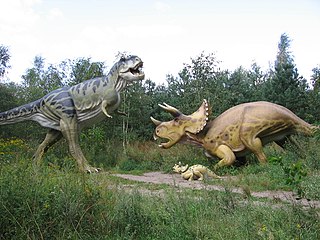 W
WCultural depictions of dinosaurs have been numerous since the word dinosaur was coined in 1842. The non-avian dinosaurs featured in books, films, television programs, artwork, and other media have been used for both education and entertainment. The depictions range from the realistic, as in the television documentaries of the 1990s and first decade of the 21st century, or the fantastic, as in the monster movies of the 1950s and 1960s.
 W
WDigital media means any media that are encoded in machine-readable formats. Digital media can be created, viewed, distributed, modified, and preserved on digital electronics devices. Digital can be defined as any data represented with a series of digits, and Media refers to a method of broadcasting or communicating information. Together, digital media refers to any information that is broadcast to us through a screen. This includes text, audio, video, and graphics that is transmitted over the internet, for viewing on the internet.
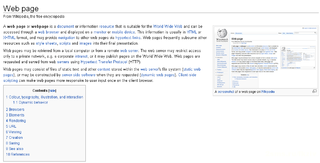 W
WElectronic media are media that use electronics or electromechanical audience to access the content. This is in contrast to static media, which today are most often created electronically, but do not require electronics to be accessed by the end user in the printed form. The primary electronic media sources familiar to the general public are video recordings, audio recordings, multimedia presentations, slide presentations, CD-ROM and online content. Most new media are in the form of digital media. However, electronic media may be in either analogue electronics data or digital electronic data format.
 W
WGeography of media and communication is an interdisciplinary research area bringing together human geography with media studies and communication theory. Research addressing the geography of media and communication seeks to understand how acts of communication and the systems they depend on both shape and are shaped by geographical patterns and processes.
 W
WThis is a list of fictional characters that either self-identify as vegetarian or have been identified by outside parties to be vegetarian. Listed characters are either protagonists and recurring characters. Some scholars have argued that mass media serves as a "source of information for individuals" interested in vegetarianism or veganism, while there are "increasing social sanctions against eating meat." Even so, there are lingering stereotypes of vegans and vegetarians in the same media, with journalist Farhad Manjoo writing in August 2019 that it is "still widely acceptable to make fun of vegans."
 W
W"Low culture" is a derogatory term for forms of popular culture that have mass appeal. Its contrast is "high culture", which can also be derogatory. It has been said by culture theorists that both high culture and low culture are subcultures. Popular culture is mass produced by the what has been called by culture analyst Theodor Adorno the "culture industry".
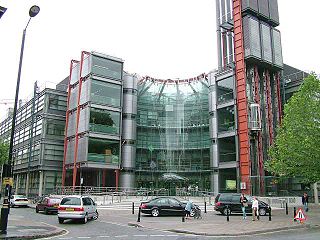 W
WLondon is a major international communications centre with a virtually unrivalled number of media outlets. Almost all of the major media organisations in the UK are based in London. Much of the British media is concentrated in London and is sometimes accused of having a "London bias". All the major television networks are headquartered in London including the BBC, which remains one of the world's most influential media organisations, and the largest Broadcaster in the world. Partly to counter complaints about London bias, the BBC announced in June 2004 that some departments are to be relocated to Manchester. Other networks headquartered in London include ITV, Channel 4, Channel 5, CNN International and Sky UK. Like the BBC, these produce some programms elsewhere in the UK, but London is their main production centre. Local programming, including news, is provided by the regional services of the main networks: e.g. BBC London News on BBC One and ITV London on ITV.
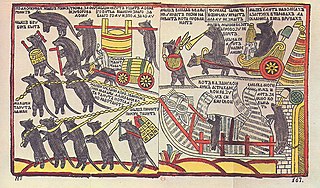 W
WPopular prints is a term for printed images of generally low artistic quality which were sold cheaply in Europe and later the New World from the 15th to 18th centuries, often with text as well as images. They were some of the earliest examples of mass media. After about 1800, the types and quantity of images greatly increased, but other terms are usually used to categorise them.
 W
WRadical media are communication outlets that disperse action-oriented political agendas utilizing existing communication infrastructures and its supportive users. These types of media are differentiated from conventional mass communications through its progressive content, reformist culture, and democratic process of production and distribution. Advocates support its alternative and oppositional view of mass media, arguing that conventional outlets are politically biased through their production and distribution. However, there are some critics that exist in terms of validating the authenticity of the content, its political ideology, long-term perishability, and the social actions led by the media.
 W
WSynthetic media is a catch-all term for the artificial production, manipulation, and modification of data and media by automated means, especially through the use of artificial intelligence algorithms, such as for the purpose of misleading people or changing an original meaning. Synthetic media as a field has grown rapidly since the creation of generative adversarial networks, primarily through the rise of deepfakes as well as music synthesis, text generation, human image synthesis, speech synthesis, and more. Though experts use the term "synthetic media," individual methods such as deepfakes and text synthesis are sometimes not referred to as such by the media but instead by their respective terminology Significant attention arose towards the field of synthetic media starting in 2017 when Vice reported on the emergence of pornographic videos altered with the use of AI algorithms to insert the faces of famous actresses. Fears of synthetic media include the potential to supercharge fake news, the spread of misinformation, distrust of reality, mass automation of creative and journalistic jobs, and potentially a complete retreat into AI-generated fantasy worlds. Synthetic media is an applied form of artificial imagination.
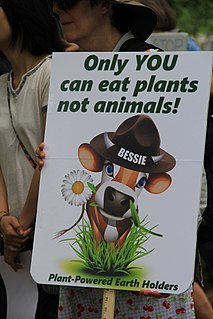 W
WVegetarians are those who abstain from the consumption of meat, and may also include abstention from by-products of animal slaughter. Some scholars have argued that mass media serves as a "source of information for individuals" interested in vegetarianism or veganism, while there are "increasing social sanctions against eating meat" and a continuing trend of less meta consumption in the United States due to a focus on physical health and environmental awareness. Over time, societal attitudes of vegetarianism have changed, as have perceptions of vegetarianism in popular culture, leading to more "vegetarian sentiment." Even so, there are still existing "meat-based" food metaphors which infuse daily speech and those who are vegetarian and vegan are met with "acceptance, tolerance, or hostility" after they divulge they are vegetarian or vegan. Additionally, some argue that veganism has been dismissed in news media or that clickbait culture often portrays feminists and vegans as "irrational extremists." This is because in Western societies, "meat-based diets are the norm" with those who avoid meat still representing "a small minority," with more women than men as vegan and vegetarian, with women being "under-represented in the mass media," the latter influencing more to be vegetarians.